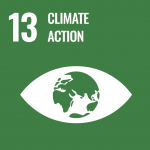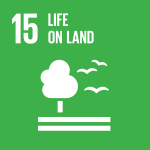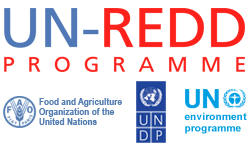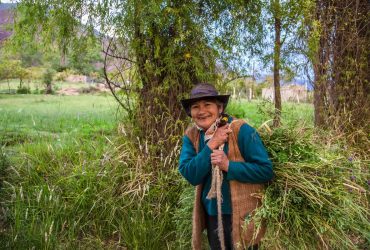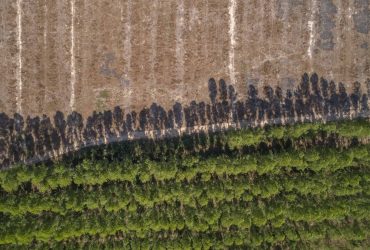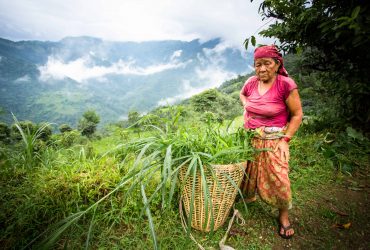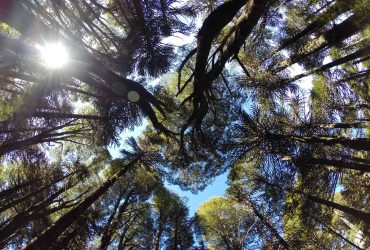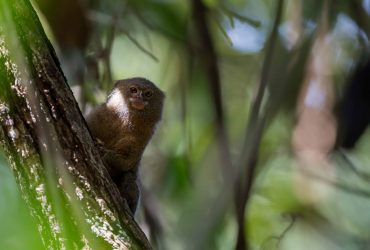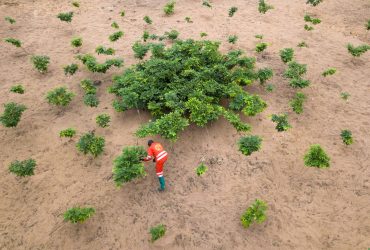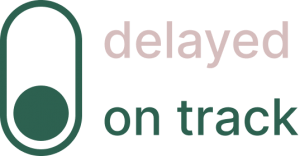


The Republic of Congo continues to work towards reducing emissions caused by deforestation. The country is committed to implementing concrete actions aligned with its national REDD+ strategy and national development plan through the development of programmes, projects and initiatives under the GCF, the Central African Forest Initiative [CAFI], the World Bank – Forest Carbon Partnership Facility (FCPF), the Lowering Emissions by Accelerating Forest finance (LEAF) initiative, and ART-TREES.
Legislation recently passed in 2020, the Forest Code of the Republic of Congo, recognizes REDD+ as a valuable forest management approach. Moreover, the country recognizes the need to continuously improve the current system to attract climate finance, and in turn, truly benefit Indigenous people and local communities.
In 2022, the UN-REDD programme provided technical support to the country to update its Forest Reference Emissions Levels (FREL), and for the development of the SOI and gap analysis to improve access by Indigenous people and local communities to climate finance and benefits.
Forest Solutions Realized: Most of the activity data, obtained using radar imagery and required for the FREL update, are available. However, additional work is planned to improve other parameters such as emissions factors, adjustments and degradation through separate technical assistance provided by the SYNA-MNV programme in 2023. This project is being implemented in partnership with the National Centre for Forest and Fauna Inventory (CNIAF) Measurement, Notification, Verification (MNV) unit.
The development of the SIS is ongoing. The information requirements, information providers, and overall structure of the safeguard summary of information (SoI) have been defined. The document, to be developed in 2023, will present the main advances in safeguards processes and report on the country’s approach to building its SIS. UN-REDD technical assistance will support the country in developing and submitting its first SoI. This process will involve key REDD+ stakeholders and will build on previous experiences and learnings to promote an inclusive and gender responsive process emphasizing the need to actively involve women and other marginalized stakeholders.
During 2022, the findings of a gap analysis of the Republic of Congo’s safeguard system in relation to the ART-TREES requirements were incorporated into the country’s LEAF submission.
Forest Solutions Rewarded: As the market for 2018-2019 vintages of High Forest, Low Deforestation (HFLD) carbon credits is uncertain, after exchanges with the government, the formulation of the ART-TREES 2.0 concept note was postponed to 2023. Registration under ART-TREES is a demanding process, especially meeting requirements related to safeguards, benefit sharing, carbon rights and country engagement. These aspects will be supported through the 2023 UN-REDD technical assistance.
Existing financial and benefits transfer mechanisms at several levels, as well as the legal, political, and strategic frameworks related to community and tenure rights, were examined in collaboration with the REDD+ national coordination and key REDD+ stakeholders. The analysis, summarizing the positioning of the Republic of Congo to meet its commitment under the Glasgow Declaration (UNFCCC COP 26), recognizes several critical key legal and governance issues that must be addressed to ensure Indigenous Peoples and Local Communities (IPLCs) benefit from REDD+ finance. The analysis highlights that despite various efforts to reform the legal and policy framework, there remain gaps in implementation in terms of the engagement of IPLCs in development of the benefit sharing mechanism, in obtaining forest tenure rights, especially for women, and in accessing an operational grievance mechanism. Respect for REDD+ safeguards should be further improved to enhance the country’s eligibility for REDD+ climate finance. The technical brief, aimed particularly at REDD+ policymakers, has been published in French and will be officially launched in early 2023.
In 2022, national REDD+ coordination faced major issues with regards to staff capacity, including high turnover of REDD+ national coordination staff, resulting in limited responsiveness. The COVID-19 pandemic continued to create major challenges, hampering delivery of technical assistance, including the total prevention of missions to the country. Thus, the UN-REDD Programme mostly used digital tools and remote modalities for the implementation of the workplan, including for trainings and workshops.
The country made some progress with access to carbon finance, such as the FREL update, progress on an ART-TREES submission and the submission of a LEAF concept note, though the biennial updated report (BUR) was not submitted on time due to a lack of available human resources and activities of the MNV and National Coordination REDD+ cells. To overcome institutional struggles, the agreement with the ministry was reworked, and remains open and available to suggestions for implementation.
Gender equality has been strongly emphasised during UN-REDD activities carried out in 2022, and in particular, gender has been integrated into the design of new REDD+ projects. For example, gender expertise was provided by UN-REDD in the formulation of a new GCF project, PREFOREST, that aims to reduce greenhouse gas emissions from forests. The project implementation is guided by a comprehensive Gender Action Plan (GAP) integrating gender tools developed by the UN-REDD Programme. The project’s Gender Action Plan (GAP) sets ambitious and measurable goals to support rural women as they work to obtain secure tenure rights, engage in forest enterprises, tree nursery management and agroforestry, and gain access to financial credit.
Gender equality was also strongly encouraged during activities carried out in 2022, including the radar imagery training in partnership with USFS that achieved almost 50 percent women’s participation. A minimum threshold of at least 30 percent women‘s participation has been set for all activities.
UN-REDD supported major REDD+ projects, such as PREFOREST (Project to reduce greenhouse gas emissions from forests in five departments in the Republic of Congo) and PROREP (Strengthening sustainable wood energy potential projects), demonstrating a high level of collaboration between different stakeholders. The technical committee of REDD+ projects, such as the SYNA-MNV programme, is inclusive. For the SYNA-MNV programme, its technical committee is composed of different collaborators, such as the implementing agencies involved in Component 2 of the land use planning project led by the French Development Agency, as well as the Emissions Reductions Programme in Sangha-Likouala.
Several training sessions will take place within the framework of these projects and programmes, including UN-REDD programme activities, involving technicians from different ministries, such as Environment, Planning, Territorial Equipment and Works, as well as academics.
The SIS is at the heart of this participatory mechanism, with its design involving different REDD+ stakeholders. Future steps to strengthen the SIS will be socially inclusive and will include stakeholder inputs. In addition, following a UNDP gap analysis of the safeguards system for ART-TREES 2.0 requirements, a targeted engagement and data collection process will engage key information providers through bilateral discussions, focus group discussions and broader consultations.
The continued development of the NFMS, and the progress towards the SIS relate to SDG 13 and 15. Through the implementation of REDD+ projects, namely the PROREP and PREFOREST projects, the Republic of Congo will advance specifically on SDG 15.3.1, amongst other SDG indicators, in the coming years.
